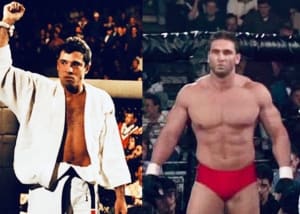
On November 12, 1993, in Denver, Colorado, history was made as the Ultimate Fighting Championship (UFC) held its inaugural event, UFC 1. What began as an audacious experiment to determine the most effective martial art quickly evolved into a global phenomenon that revolutionized combat sports forever. In this article, we'll delve into the historic significance of UFC 1 and its lasting impact on the world of mixed martial arts (MMA).
Conceived by Brazilian jiu-jitsu pioneers Rorion Gracie and Art Davie, UFC 1 was designed to answer a simple yet provocative question: which martial art reigns supreme in a real fight? To find out, the UFC brought together fighters from various disciplines, including boxing, kickboxing, wrestling, karate, and Brazilian jiu-jitsu, to compete in a no-holds-barred tournament.
UF 1 featured an eight-man tournament format, with fighters representing different martial arts disciplines. There were virtually no rules, except for a few basic safety precautions, such as no eye gouging or biting. Matches could end via knockout, submission, or a fighter's corner throwing in the towel.
Despite the diversity of martial arts styles represented at UFC 1, it was Brazilian jiu-jitsu (BJJ) that emerged as the dominant force. Royce Gracie, representing the Gracie family, showcased the effectiveness of BJJ by submitting all three of his opponents to win the tournament. His victories demonstrated the importance of grappling, leverage, and ground fighting in a real combat scenario, forever changing the landscape of martial arts.
UFC 1 was met with shock and controversy from critics who labeled it as "human cockfighting" and called for its banishment. The brutal nature of the early UFC events, combined with the lack of regulation, raised concerns about fighter safety and the potential for serious injury. However, supporters argued that the UFC provided a platform for martial artists to test their skills in a controlled environment and helped to dispel myths about the effectiveness of traditional martial arts in real combat.
Despite the initial backlash, UFC 1 laid the foundation for what would become the fastest-growing sport in the world. It sparked a revolution in combat sports, paving the way for the rise of mixed martial arts (MMA) as a legitimate and respected sport. The success of UFC 1 led to the creation of the Unified Rules of Mixed Martial Arts, which established standardized regulations and safety protocols for the sport.
Today, the UFC has evolved into a global juggernaut, with millions of fans around the world tuning in to watch elite athletes compete in the octagon. UFC champions are celebrated as modern-day gladiators, and the sport continues to push the boundaries of athleticism, skill, and courage.

